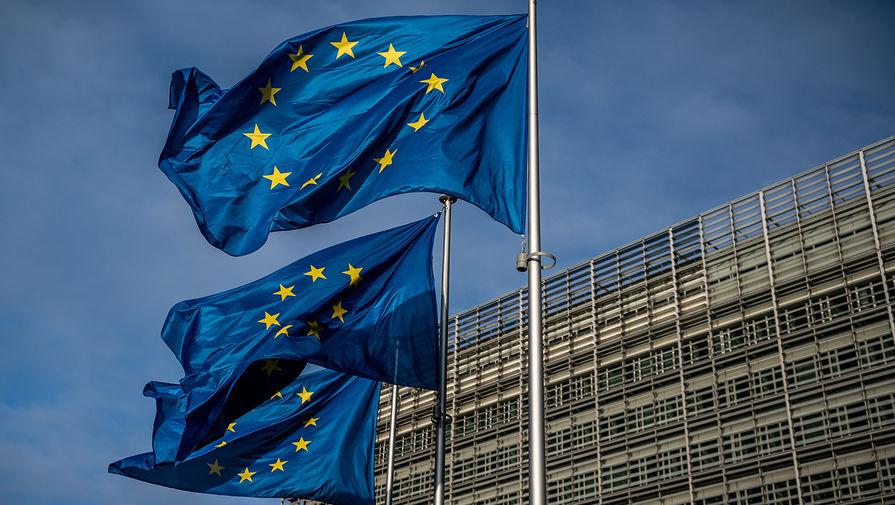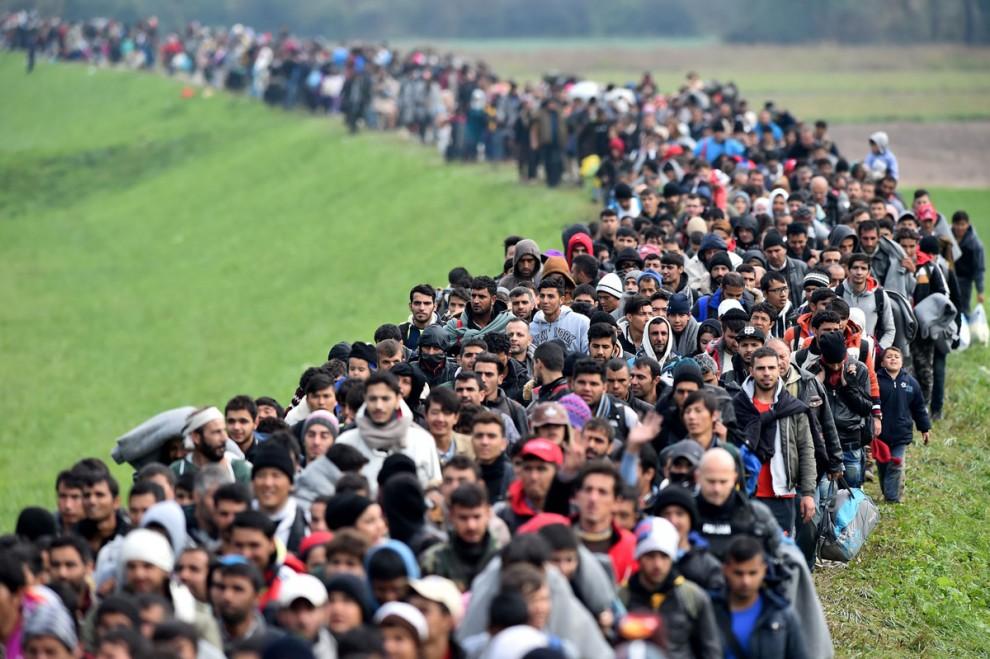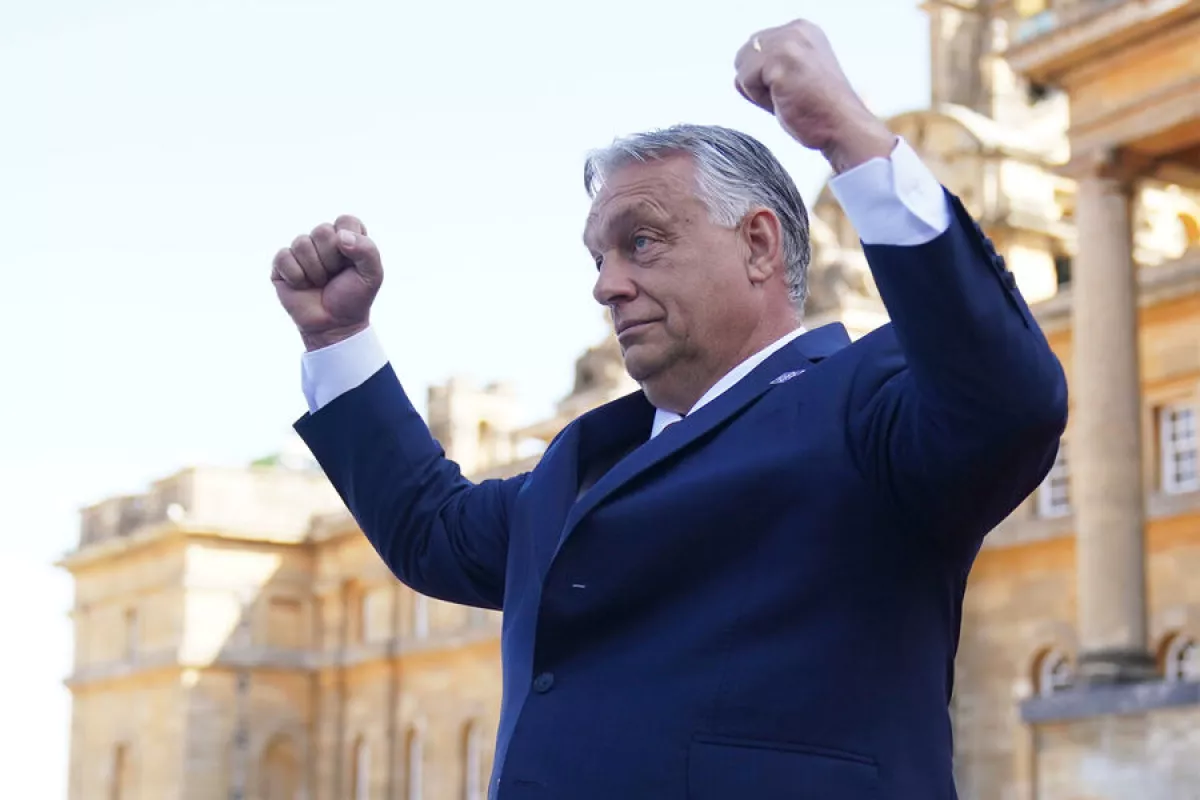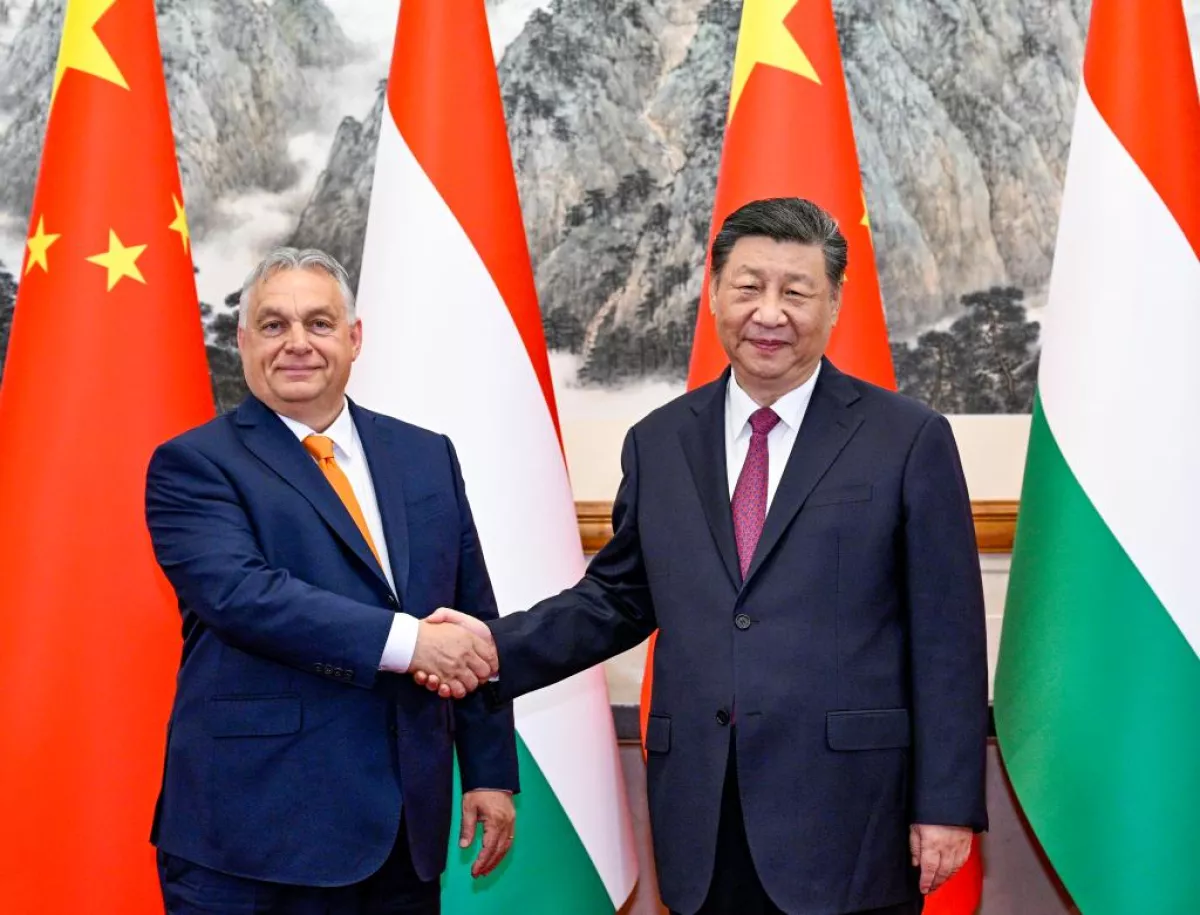EU vs. Hungary: Political coercion in the name of democracy Europe’s financial blackmail
Boasting about its "pluralistic" values, the EU is blatantly twisting the arms of any governments that attempt to pursue independent policies and defend national interests.
Financial blackmail or a fight for "democracy"?
The European Commission's press service announced that Hungary will not receive the first tranche of 1.04 billion euros from the EU's regional development budget. These funds had been frozen earlier due to Budapest's alleged failure to comply with the rule of law standards, and now they have been permanently withheld. But what exactly is wrong with Hungary's legal system?
The story is briefly as follows. In December 2022, a decision was made in Brussels to freeze 6.3 billion euros for Hungary under the EU cohesion program. Hungary was also denied access to 6 billion euros from the COVID-19 recovery fund. Officially, this was justified by alleged opacity in the spending of EU funds, violations in public procurement, a lack of progress in the fight against corruption, and ineffective prosecutorial investigations. All of this was said to pose risks to the "Union's budget." However, in 2022, the European Commission was forced to admit that Hungary had implemented several measures to address these shortcomings. Nonetheless, it still decided to punish Hungary.
The European Commission then issued a list of 17 demands that Hungary had to fulfil within two years. On December 31, 2024, Hungary's Minister for EU Affairs, János Bóka, wrote on his Facebook: "The Hungarian government has met all the conditions for access to EU resources. Brussels wants to take resources away from Hungary and the Hungarian people for political reasons. But as long as Hungary has a national and sovereign government, it will not lose a single cent... Hungary will use all legal and political means to acquire the remaining resources."
However, European Commission spokesperson Anna-Kaisa Itkonen has already stated to the Polish Press Agency (PAP): "This loss is irrevocable, and Budapest has no right to appeal." This marked the first such case in the EU since the adoption of the Rule of Law Conditionality Regulation in 2020. This mechanism was created to ensure that member states uphold the "values of the EU." However, it also allows Brussels to exert strict control over any non-compliant states.

The withheld funds were intended for the development of Hungary's infrastructure, education, and regional development, and this could cause significant harm to the country. Many observers believe that this event marks a turning point in Hungary-EU relations. At the same time, the initiative for the escalation clearly belongs to Brussels.
Rule of law – through the lens of geopolitics
Here is a typical example of the European Union's selective approach to its own members. For instance, EU funds amounting to 140 million euros were frozen for Poland when the moderate "Euro-skeptics" from the PiS party were in power. The justification for this blockade was also an accusation of violating democratic norms. However, about a year ago, conservatives were replaced by a liberal, more pro-European coalition led by Donald Tusk. Now, the opposition accuses the new government of authoritarianism, control over the media, and courts, and persecution of opponents. Yet this time, Brussels remains silent and calmly returns 137 million euros from the frozen grant...
In addition, Hungary is facing other EU sanctions. Among other things, in 2024, the European Court imposed a fine of 200 million euros on Hungary for failing to comply with EU asylum rules. An additional penalty of one million euros was added for delays in addressing these violations. The cases involving refugees who were deported from Hungary were described as "an unprecedented violation of EU rules." However, at the same time, the practice of deporting and harsh treatment of migrants, which even led to several recorded deaths among asylum seekers, was not condemned by the European Commission when carried out by the Baltic states and Poland. This is likely because the migrants were forcibly deported to Belarus. In this case, the geopolitical agenda proved to be decisive.

European liberals, who are so sensitive about political correctness, are quick to resort to blatant racism when it comes to those they disagree with. For example, on EU platforms, Hungary is referred to as "Orbanistan." Similarly, derogatory language and manipulations are used about another country that dared to oppose Brussels – Slovakia. It is called "Ficoland," and photos of the Slovak Prime Minister alongside Putin are demagogically edited into a collage with images of the Slovak dictator from World War II, Tiso, and Hitler.
The "golden route" Beijing–Budapest
Notably, the EU raised concerns about real or alleged issues in Hungary’s public procurement system as far back as 2007–2013. Yet, during that time, these concerns weren’t escalated, and no penalties were imposed on Budapest. So, what has truly triggered Brussels’ current harsh stance against Hungary?
Hungarian Prime Minister Viktor Orbán described the European Commission's recent decision to freeze the EU tranche as politically motivated. At the same time, Orbán is often portrayed in both Western and Russian media as a "pro-Russian politician." In reality, this portrayal is somewhat misleading. Orbán condemned Russia’s military intervention in Ukraine, supported Kyiv, and backed sanctions against Russia. However, he advocates for an end to military actions and a resolution of the conflict through negotiations, believing that this requires mutual concessions and abandoning Ukraine's NATO membership aspirations.
While Orbán's stance on the Ukraine war isn’t particularly extraordinary, it aligns to some extent with the declarations of U.S. President-elect Donald Trump. As for Hungary’s relations with Moscow, Orbán bases them primarily on the interests of national business.
Orbán is often labeled a "Eurosceptic." However, during Hungary's recent presidency of the EU, he adopted the slogan "Make Europe Great Again!" in imitation of Trump. This suggests that the Hungarian Prime Minister is not an enemy of European values or integration but rather an advocate of their right-wing conservative interpretation.

Perhaps the most unforgivable aspect of Hungary's government in Brussels' eyes is its close ties with China. The PRC is the EU’s main economic competitor, and European corporations have recently been losing to it by a significant margin. Consequently, Hungary's orientation towards fostering state-level cooperation with Beijing is seen in Brussels as an unacceptable act of defection.
Hungary is the EU’s largest partner with China in both investments and logistics. The political axis between Beijing and Budapest is also strengthening. According to Hungarian Foreign Minister Péter Szijjártó, in 2024, Hungary accounted for 44% of all Chinese investments in Europe. During his visit to Budapest in May last year, Chinese President Xi Jinping described the relationship between the two countries as an "all-weather strategic partnership" and declared that China and Hungary were embarking on a "golden journey."
The visit also announced new cooperation in the nuclear sector and the reconstruction of the Budapest-Belgrade railway. This $2.1 billion project, largely funded by a Chinese loan, is part of the "Belt and Road Initiative." In total, Hungary and China signed 18 agreements during the meeting between the two leaders.
Since last year, Beijing and Budapest have indeed elevated their relationship to a new level, extending beyond traditional trade and economic cooperation. In February, China’s Minister of Public Security Wang Xiaohong and Hungary’s Minister of Interior Sándor Pintér signed an agreement on security cooperation, focusing on combating international terrorism and transnational crime. Plans are also underway for joint work on security within the framework of the "Belt and Road Initiative."
This year, Hungary will host its sixth Confucius Institute, further deepening cultural ties. Additionally, the city of Szeged will welcome the first European factory of Chinese automobile giant BYD, posing a fresh challenge to the already struggling EU automotive industry. Meanwhile, in Debrecen, one of China’s largest investors, CATL, is constructing a €7.3 billion battery manufacturing plant, marking a significant milestone in Hungary’s industrial development.

Hungary is also home to Huawei Technologies' largest logistics and manufacturing base outside China, despite the European Commission designating the company as a "security threat to the EU." Brussels has repeatedly urged member states to "align" — in other words, limit — their relations with China. However, Hungary continues to shape its foreign policy based on its economic interests rather than the demands of Western globalists. Budapest has consistently taken a neutral stance or supported Beijing in instances where it faced criticism.
All of this provokes grinding teeth in many Brussels offices and among the leadership of the transnational corporations they represent. It seems Hungary has become a serious target, with attempts to erect barriers along the "golden route" connecting China and Hungary. Future tranches from the €6 billion allocated to Budapest for regional development are now in question.
On January 3, Poland's liberal government under Donald Tusk notably excluded Viktor Orbán and the Hungarian ambassador from the ceremony marking Poland's assumption of the EU presidency. The official reason cited was Hungary’s granting of political asylum to former Polish Deputy Minister of Justice Marcin Romanowski, who is under suspicion of embezzlement. Whether coincidental or deliberate, this episode aligns with the EU’s increasingly negative attitude towards Budapest. Likely, the confrontation between the European Commission and Hungary will only intensify soon.
Hungarian politicians may be far from perfect and unpopular among some EU leaders, but they were elected by their national electorate. This means that their decisions, whatever they may be, effectively reflect the will of the majority of Hungarians. Is this not the very essence of democracy that Brussels so ardently advocates?
Like any other country, Hungary may have unresolved domestic issues. However, as a sovereign state, it has the right to independently determine its foreign policy and freely choose its economic partners. The EU’s practice of double standards and its frequent use of de facto coercion to enforce compliance risks alienating not only Hungarians but also other independent nations, driving them further away from Brussels.








